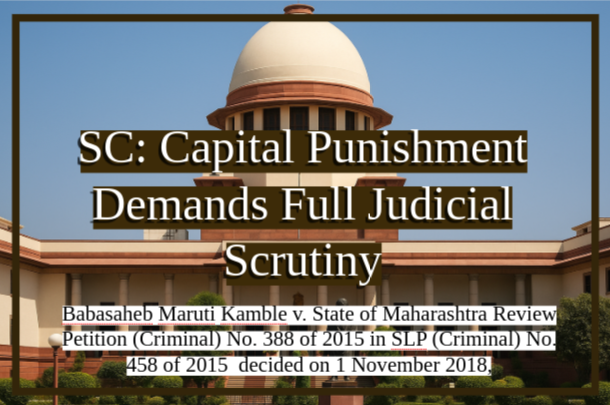Magistrates Must Apply Judicial Mind: SC Tightens Standards for Section 156(3) CrPC Complaints
- M.R Mishra

- Jun 8, 2025
- 2 min read
In Priyanka Srivastava v. State of U.P., the Supreme Court handed down a watershed ruling that significantly redefines the procedural gateway for criminal complaints filed under Section 156(3) CrPC. Delivered by Justice Dipak Misra, this judgment marks a doctrinal turning point in curbing frivolous litigation, particularly those filed to harass officials, delay recoveries, or extract settlements in civil or financial disputes.
The case arose from a pattern that courts have increasingly encountered: a borrower defaulting under the SARFAESI Act turns around and weaponizes the criminal justice system.
What's The Matter?
In this instance, the borrower, Prakash Kumar Bajaj, after defaulting on a housing loan and losing a challenge under SARFAESI, filed a string of criminal complaints under Section 156(3) against bank officials including the Vice President of PNB Housing Finance and the valuation officer alleging forgery and criminal conspiracy.
The complaints were striking not only for their timing post-recovery action but also for their design: they bypassed civil remedy, directly invoking police investigation through court orders.
This culminated in multiple FIRs, despite no prior efforts to initiate action under Sections 154(1) or 154(3) CrPC.
The High Court refused to interfere.
The Supreme Court, however, struck a different tone.
Section 156(3) Is Not a Door Left Ajar for Abuse
The Court held that applications under Section 156(3) CrPC must not be entertained mechanically or routinely. It emphasized that:
Magistrates must apply judicial mind before directing police to register an FIR and begin investigation.
A sworn affidavit must accompany such applications to ensure accountability of the complainant.
Prior efforts under Sections 154(1) and 154(3) CrPC to approach police officers and the Superintendent
must be explicitly disclosed and substantiated in the application.
Such safeguards, the Court noted, are not technical hurdles but necessary filters to prevent criminal law from being used as a tool of intimidation.
Abuse of Process in Commercial Contexts
The Court was particularly alarmed at how borrowers used criminal complaints as leverage against financial institutions, particularly after losing in SARFAESI proceedings. It described the conduct of the borrower in the case as “adventurous” and “sadistically motivated,” especially since criminal complaints continued even after he had negotiated and accepted a one-time settlement with the bank.
The Court found it disturbing that the Magistrate had directed registration of an FIR simply by recording “cognizable offence appears to be made out” without engaging with the facts or statutory protections available to bank officials under Section 32 of the SARFAESI Act.
Institutional Safeguards: Circulation to All High Courts
Recognizing the systemic abuse of Section 156(3), the Supreme Court ordered that its ruling be circulated by the Registry to all High Courts, who in turn should circulate it among Sessions Judges and Magistrates. This extraordinary step underscores the Court’s concern with preventing misuse and restoring judicial discipline at the foundational level of criminal procedure.
Thanks For Visiting!!







Comments